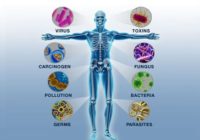 By Dr Jeffrey Morrison, M.D., C.N.S., Gerald Simons, P.A.-C., and Stephanie Mandel
By Dr Jeffrey Morrison, M.D., C.N.S., Gerald Simons, P.A.-C., and Stephanie Mandel
Years ago, we humans spent many of our hours outdoors in sunlight. As we continue to discover a growing list of reasons why “the sunshine vitamin” is crucial for our health, the value of that time spent outside becomes increasingly clear. Yet many of us modern homo sapiens must spend much of our time indoors – read on to learn why vitamins D3 and K2 are so important to our health, and how you can ensure healthy levels of both.
What is Vitamin D?
Actually, vitamin D is a misnomer – although originally deemed a vitamin, it is now understood to act as a hormone with receptors throughout the entire body. It plays many crucial roles, including balancing mood, keeping bones healthy, and regulating immune function – and about half of us are vitamin D-deficient, this is why people need to make sure that they are getting the right amount of vitamin D in their system. A simple way to do this is to buy a vitamin D supplement that is available at supplementrelief.com if you wanted. In this article, we’ll explain why vitamin D is so important, how to get enough of it, and how to choose the right amount for you.
What is Vitamin K?
There are three substances referred to as “Vitamin K”: K1, K2 and K3. Vitamin K1 comes from plant sources like broccoli, spinach, and avocado, and is necessary for proper blood clotting. Vitamin K2 is found in animal sources like egg yolk, chicken liver, and beef, fermented foods like sauerkraut as well as dietary supplements like cat’s claw. The benefits of vitamin K2 extend far beyond blood clotting: it improves bone health, protects against cardiovascular disease, and helps protect the skin, brain, and prostate. Vitamin K3 is a synthetic form of vitamin K and is not recommended.
Vitamin D is crucial to your health
Vitamin D participates in an impressive range of important processes:
Builds and repairs healthy bones.
Vitamin D3, vitamin K2, and calcium work together to maintain strong, healthy bones. Vitamin D3 maintains healthy levels of calcium in the blood and increases calcium absorption from the digestive tract; we now know that vitamin K2 works synergistically with vitamin D3 to keep calcium in bones and out of soft tissues like the heart, joints, and kidneys. The two vitamins combined provide powerful support for the whole body (see below to learn why vitamin D3 is the most effective form of vitamin D).
Regulates immune function.
A healthy vitamin D level keeps us from getting sick, lowers our risk of developing autoimmune conditions, and is thought to help prevent certain cancers. If you have Vitamin D deficiency, you may need to take supplements to help boost your immune system, as not having enough of it can have a negative impact on your health.
Helps to balance hormones.
As any gynecologist will tell you, adequate vitamin D can help women avoid hot flashes and depression during menopause. It is also thought to play a role in fertility and healthy menstrual cycles.
Keeps you sharp and happy.
Low vitamin D is associated with poor cognitive function, depression and seasonal affective disorder (SAD).
Supports cardiovascular health.
Vitamin D3 and K2 work together to ensure proper use of calcium – this includes preventing calcium buildup in arteries that can contribute to heart attack or stroke.
Interesting findings about vitamin D:
-Vitamin D sufficiency is more important for bone health than high calcium intake. If Vitamin D status is sufficient, calcium intake levels of more than 800 mg/day may be unnecessary.
-Vitamin D3 supplementation during the winter may reduce the incidence of the flu.
-High circulating levels of vitamin D are associated with a lower risk of multiple sclerosis. 25-OH Vitamin D between 90-100 nmol/L were considered optimal in this study.
-Vitamin D from diet or sun may lower breast cancer risk. Overall, participating in any outdoor work at any point in life resulted in about a 40% reduction in breast cancer risk. Women with 25 OH Vitamin D levels less than 50 ng/mL were six times more likely to develop breast cancer than those with levels greater than 50.
-Vitamin D was found to be protective against melanoma relapse.
-Vitamin D supplementation in infancy has a strong protective effect against the autoimmune disease Type 1 Diabetes.
Where to get Vitamin D
There are three ways to get vitamin D: food, sun, and supplements.
Foods
While some foods provide vitamin D3 (cod liver oil, egg yolks, fatty fish), the quantities are often insufficient.
Sun
The amount of time spent in the sun for our bodies to reap the benefits of vitamin D varies depending on latitude and skin color; closer to the equator, one would need at least 10 minutes of midday sun exposure on bare arms and legs every day, without sunscreen. The higher the latitude, and the darker your skin, the more time you’d need to meet your body’s vitamin D requirements. In northern areas, it can be impossible to get adequate vitamin D through sun exposure in the winter. Those of us in, say, New York in December, need a little extra boost to get enough of this important nutrient.
Supplements
Unless you’re getting adequate sun exposure, supplementation is likely necessary to maintain healthy levels of vitamin D. Optimal vitamin D3 supplementation dosage depends on the individual and is best determined by your physician based on blood results. Common dosing for vitamin D3 is 1000 iu daily, but if a person is very deficient, we may recommend up to 5000 iu daily. Consult your physician before supplementing with vitamin D.
Know your vitamin D level!
Vitamin D can be easily and accurately measured in the blood. Ask for a 25-Hydroxyvitamin D test next time you are due for blood work. The minimum level is 25-35, but for optimal health, we recommend a level of 50 to 100.
Choose the active form of vitamin D
Vitamin D2 (Ergocalciferol) is found in some plant products and is completely inactive in our bodies. Vitamin D3 (cholecalciferol) is produced in the skin under the effects of ultraviolet radiation (sunlight) – this is the active form that our body utilizes in order to carry out many important metabolic processes.
Don’t forget about vitamin K2
You must supplement with vitamin K2 when supplementing with vitamin D to make sure calcium goes where you want it (bone) and stays out of the places you don’t (arteries, kidneys, and other soft tissues). Whenever supplementing with vitamin D, choose a supplement with at least 100 mcg of vitamin K2, like our Vitamin D3/K2 capsules.
And now we’d like to hear from you…do you think you’re getting enough vitamin D?
This article does not establish a practitioner-patient relationship. Consult with your health provider on how supplements may affect your current condition or medications.
Gerald T. Simons is a Physician’s Assistant working at The Morrison Center in NYC where he works with patients to create an immersive program to address persistent infections and rebuild the immune system.Learn more about Jerry and his work at The Morrison Center.
Dr. Jeffrey Morrison is a medical doctor, the author of Cleanse Your Body, Clear Your Mind, and founder of The Morrison Center, in NYC. He partners with patients to find the underlying cause of their symptoms and provide a thorough, individualized treatment and nutritionally-based program to achieve optimal health result. Learn more about Dr. Morrison and The Morrison Center.
Stephanie Mandel is a Nutrition Advisor at The Morrison Center, in NYC, where she partners with clients to optimize their energy, vitality and physical well-being with the use of diet modification, and a balanced, natural approach. Learn more about The Morrison Center’s Nutrition Services.











